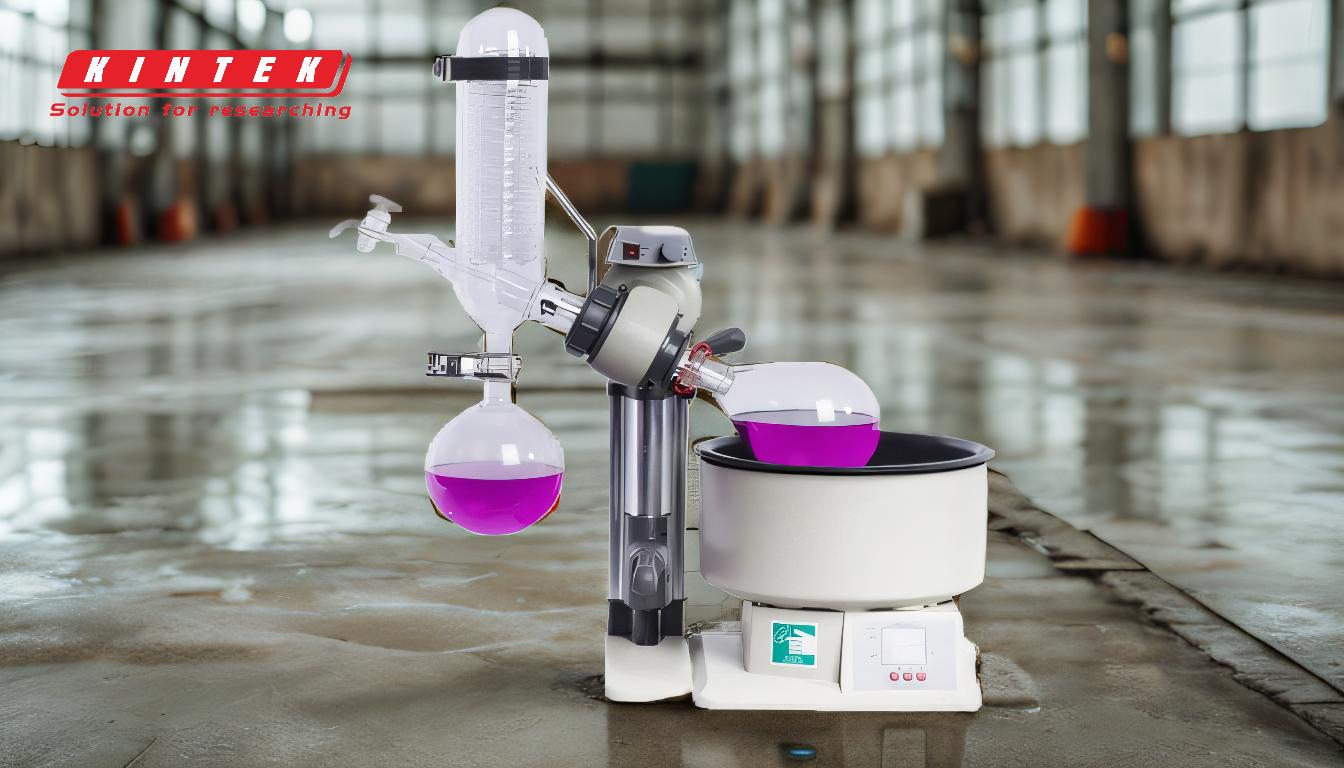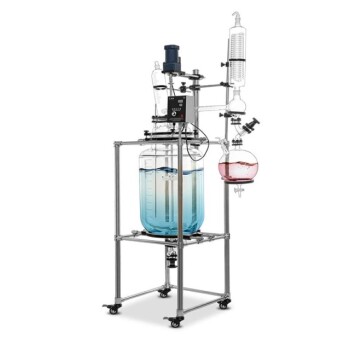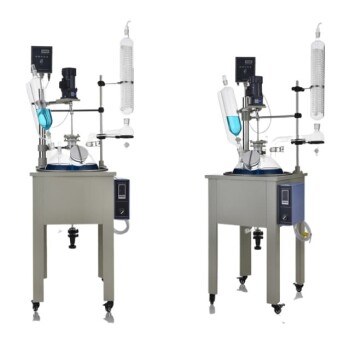A rotary evaporator is a versatile and essential piece of laboratory equipment used across various industries and research fields. Its primary applications include distillation, purification, concentration, crystallization, drying, and solvent recovery. In laboratories, it is particularly valued for its ability to handle heat-sensitive materials, making it indispensable in pharmaceutical, chemical, and bio-pharmaceutical research. Additionally, it finds use in molecular cooking, gastronomy, and teaching. The rotary evaporator's ability to operate under reduced pressure and efficiently remove solvents makes it a critical tool for tasks such as chemical synthesis, extraction of natural compounds, and preparation of samples for freeze-drying.
Key Points Explained:

-
Distillation and Purification
- Rotary evaporators are primarily used for the distillation and purification of liquids, especially organic compounds.
- They enable the separation of solvents from mixtures under reduced pressure, which lowers the boiling point of solvents and prevents thermal degradation of heat-sensitive compounds.
- This makes them ideal for purifying plant extracts, essential oils, and complex chemical mixtures.
-
Concentration and Crystallization
- Rotary evaporators are widely used to concentrate solutions by removing excess solvents, leaving behind a more concentrated sample.
- They are also employed in crystallization processes, where the removal of solvents helps in the formation of pure crystals from solutions.
- These applications are particularly important in pharmaceutical and chemical industries for producing high-purity compounds.
-
Drying and Solvent Recovery
- The equipment is highly effective for drying samples, especially those that are heat-sensitive.
- It is also used for solvent recovery, allowing laboratories to reclaim and reuse solvents, which is both cost-effective and environmentally friendly.
- This is crucial in industries where large volumes of solvents are used, such as in pharmaceutical manufacturing.
-
Chemical Synthesis and Reflux
- Rotary evaporators are used in chemical synthesis under reflux conditions, where they help in maintaining a controlled environment for reactions.
- They are also useful for mixing and formulating chemical compounds, ensuring consistent results in research and production.
-
Extraction of Natural Compounds
- In the bio-pharmaceutical and natural product industries, rotary evaporators are used to extract and purify compounds from natural sources, such as plants and essential oils.
- This is particularly important for producing high-quality extracts for use in medicines, cosmetics, and food products.
-
Preparation for Freeze-Drying
- Rotary evaporators are often used to prepare samples for freeze-drying by removing solvents and concentrating the sample.
- This step is critical in ensuring the stability and longevity of heat-sensitive biological and pharmaceutical samples.
-
Applications in Molecular Cooking and Gastronomy
- Beyond traditional laboratory use, rotary evaporators are employed in molecular cooking and gastronomy to create unique flavors and textures by extracting and concentrating natural essences.
- This innovative application highlights the versatility of the equipment.
-
Teaching and Research
- Rotary evaporators are commonly used in academic settings for teaching purposes, allowing students to learn about distillation, purification, and other essential laboratory techniques.
- They are also indispensable in medical and biological research for handling heat-sensitive samples and performing precise solvent removal.
-
Industrial Applications
- In industrial settings, rotary evaporators are used for continuous distillation of volatile solvents, ensuring efficient and scalable production processes.
- They are also employed in the separation and recovery of solvents, contributing to sustainable manufacturing practices.
-
Versatility Across Fields
- The rotary evaporator's ability to handle a wide range of tasks—from chemical synthesis to natural product extraction—makes it a critical tool in fields such as pharmaceuticals, chemistry, biology, and even culinary arts.
- Its adaptability and efficiency ensure its continued relevance in both research and industrial applications.
In summary, the rotary evaporator is a multifunctional instrument that plays a vital role in laboratory and industrial processes. Its ability to perform tasks such as distillation, concentration, drying, and solvent recovery under reduced pressure makes it indispensable for handling heat-sensitive materials and achieving high-purity results. Whether in pharmaceutical research, chemical synthesis, or molecular gastronomy, the rotary evaporator remains a cornerstone of modern laboratory practice.
Summary Table:
| Application | Key Uses |
|---|---|
| Distillation/Purification | Separation of solvents, purification of organic compounds, essential oils. |
| Concentration/Crystallization | Concentrating solutions, forming pure crystals for high-purity compounds. |
| Drying/Solvent Recovery | Drying heat-sensitive samples, reclaiming solvents for cost efficiency. |
| Chemical Synthesis | Maintaining controlled environments for reactions, mixing compounds. |
| Natural Compound Extraction | Extracting and purifying compounds from plants, essential oils. |
| Freeze-Drying Preparation | Removing solvents to prepare samples for freeze-drying. |
| Molecular Cooking | Creating unique flavors and textures by concentrating natural essences. |
| Teaching/Research | Teaching lab techniques, handling heat-sensitive samples in research. |
| Industrial Processes | Continuous distillation, solvent recovery for sustainable manufacturing. |
Discover how a rotary evaporator can enhance your lab or industrial processes—contact us today for expert advice!














